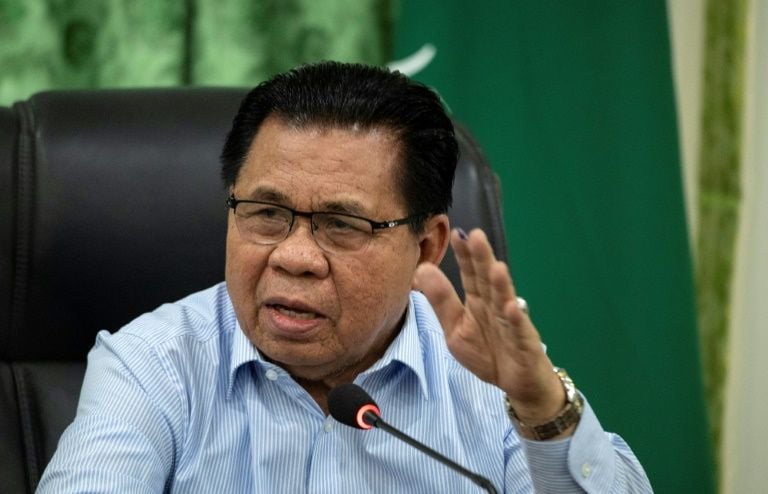
President Rodrigo Duterte personally swore in Murad Ebrahim, head of the Catholic-majority nation's largest Muslim group, as interim chief minister at a symbolic Manila ceremony.
It comes after voters decisively backed in January the founding of the so-called Bangsamoro region in the south, the culmination of a peace deal to end a separatist insurgency that had killed some 150,000 people since the 1970s.
Duterte and Murad, leader of the Moro Islamic Liberation Front (MILF), have both said they hope the pact will help head off the rise of militant extremism in the country's Muslim-populated southern region of Mindanao.
"The road to peace may be long and rough, but I am glad that we've finally reached its end point," Duterte said in a speech after also swearing the other members of a Bangsamoro transition government, a majority of them picked by the MILF.
"Most of all we would like to see an end to the violence that has wracked Mindanao and have cost so many lives for nothing," the president added.
Muslim self-rule backed in Philippines' troubled south
Murad's MILF signed a peace treaty with the Philippine government in 2014, and the legislature of the mainly Catholic Asian nation last year passed a law creating the self-rule area, which voters later ratified.
Murad and his transition body will form a cabinet as well as pass laws until the temporary arrangement ends with the election of a regional parliament in May 2022.
During Murad's term some of his more than 10,000 armed fighters are expected to gradually disarm under the terms set by the peace treaty.
The rebellion began in the early 1970s as a bid to set up a separate Muslim state in the Mindanao region. The rebels later scaled down their objective to autonomy.
Despite the MILF peace deal, violence persisted as more radical Islamic groups set up shop in what remains the poorest segment of the country.
In May 2017, hundreds of foreign and local pro-IS gunmen seized Marawi, the country's largest Muslim city.
The Philippine military wrested back the ruined city after a five-month battle that claimed more than a thousand lives.
An earlier peace treaty between Manila and a rival Muslim rebel faction had created a self-rule area in 1996, but it was hampered by funding and corruption, while the MILF fought on.
The new entity is better-funded and slightly larger. The national government retains police powers.






1735203131-0/Untitled-design-(7)1735203131-0-270x192.webp)
1735199120-0/Untitled-design-(100)1735199120-0-270x192.webp)


1735195617-0/Untitled-design-(99)1735195617-0-270x192.webp)
1735025557-0/Untitled-(96)1735025557-0-270x192.webp)











COMMENTS
Comments are moderated and generally will be posted if they are on-topic and not abusive.
For more information, please see our Comments FAQ